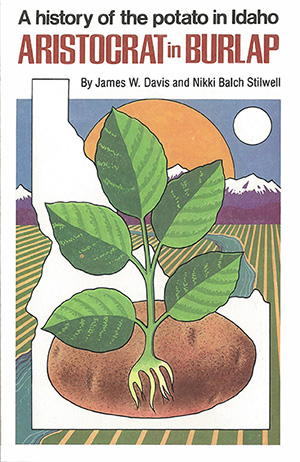In January of 1973, Edd Moore announced his retirement from the executive manager's job at Idaho Grower Shippers Association. He had been a regular attendee at IPC meetings and often brought developing problems to the attention of the body. His replacement was Meldon B. Anderson, beginning at this point a potato-industry career that would lead eventually to the chair of the IPC executive director.
During 1973, Gordon Randall began attending hearings on the state's standards for pollution control. In the latter part of 1973, a proposal was made to obtain Agricultural Research personnel for a tri-state potato-breeding program. Idaho, Oregon, and Washington all assumed a part in the program financed largely by the U. S. Department of Agriculture.
An advertising agency review in February of 1973 resulted in the IPC account being awarded to the San Francisco office of Foote Cone & Belding replacing Botsford Ketchum, the agency that had formulated Idaho's promotional programs for 36 years. Cline, Inc., part of the original agency team was retained in an in-state public relations capacity. Since Foote Cone had no national public relations department, the IPC named Dudley-Anderson Yutzy of New York to carry out publicity and consumer-education programs.
The oil embargo and energy crisis brought a host of new problems for IPC consideration in 1973 including freight-rate increases that heavily impacted shippers and processors.
Commission members decided in 1974 to turn over the promotional efforts for the Idaho® potato in Japan to the National Potato Promotions Board. The transfer was made in Japan with an Idaho industry representative present to assure the Japanese that Idaho was still very concerned about the market and would be active in the Potato Board's decisions.
One of the important turning points in the activities of the Idaho Potato Commission occurred in 1974 when the Idaho Legislature passed a bill authorizing the Commission to increase the advertising assessment from 2 and 1/44 per cwt to a maximum of 4 per cwt. For the first time, the opportunity to beef up a seriously underfunded advertising program existed. The legislation was the result of an effort supported by the growing, shipping, and processing segments of the industry and orchestrated by IPC's executive director.

